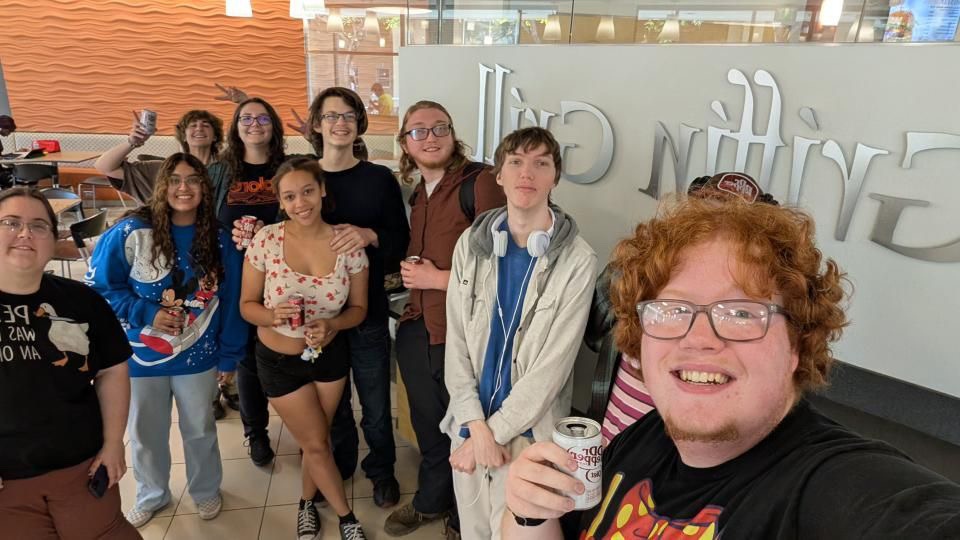
GROSSMONT COLLEGE—In life, nothing is more necessary than breathing. I love breathing! Moreover, as an avid breather, I absolutely detest smoking. In theory, then, shouldn’t I love our campus’ no-smoking, no-tobacco policy? No, I should not. It is unreasonable, wrong-headed, heavy-handed, ineffective (most importantly to me) and reeks of self-righteousness (and for a smoking-ban to reek is quite ironic.)
The whole point of the smoking-ban is to keep all that disgusting smoke away from all us non-smokers, right? Well, even if that is the goal, the reality is that I, for one, have been subjected to more smoking since the ban. And I am not alone.
Denise Schulmeyer is a faculty member in the communications department. Schulmeyer said that she, in fact, has “experienced more smoke since the ban.”
David Mullen is a dance instructor. Imagine that you are a dance instructor, and in the middle of your class, your room begins to fill with smoke – in a dance class!
That is the predicament into which the smoking-ban has put Mullen: routinely he must rush out of his room to chase away smokers from the west side of building 24, because smokers routinely sneak there – hidden from sight, but directly under the intake for the air-conditioner!
Joel Castellaw is a faculty member in the communications department. His experience is simliar to Mullens; except that, whereas Mullen chases away smokers only after they have (however unwittingly) filled his dance room with smoke, Castellaw’s predicament is even worse.
Castellaw routinely must shoo away smokers, both when they fill his classroom with smoke and when his faculty office is thus stunk-up.
And here is the real human-element to this situation: for some students (and even some faculty) it is possible to think of Grossmont faculty and staff as just extras in the movie of life – they just pop into our awareness, teach us, scold us, grade us, and then vanish back into the vapors of potential from whence they came.
However, the faculty and staff are *drumroll*…: people. Now imagine, for example, Joel Castellaw: he is, in addition to being Communications intstructor for Grossmont College, a person. Now imagine that Joel is a former smoker (which he is). Further, imagine that Joel wants (as he does) to keep smoke-free the humble personal-space that he has been afforded, by Grossmont, as his on-campus office.
Castellaw’s role at Grossmont is to teach classes in Communication; Mullin’s role is to teach classes in Dance. Neither of them should be – as they have been – deputized to enforce an unrealistic smoking-ban.
Moreover, I have spoken with – in addition to Castellaw, Mullen and Schulmeyer – dozens of faculty and staff; and nearly all of them openly state that they really have no idea what exactly their role is when confronted with someone who is defying the smoking-ban.
(And, of those who claim to know their role: none of them are convincing.)
Among the worst aspects of our school’s current smoking-policy is a lack of viable enforcement. Wrongly, some may say that enforcement of the policy is the responsibility of the campus-police (or, worse, that faculty or staff should enforce it). However, these people have plenty to do already!
To some, the solution might be simple: what goes better with a ‘zero-tolerance’ policy than heavy-handed, police-state-styled enforcement? So simply call in campus police, and get to cracking-down!
Better yet: no. Better yet: abosolutely not. (The campus police were my ‘beat’ for the Summit, and I can confidently say: they already have plenty to do.)
In 2008, Grossmont had a more realistic restriction on smoking: students, staff and faculty could only smoke in a couple designated areas. In several ways, the previous smoking-ordinance worked quite better than the existing one.
With a designated area, faculty, staff and even students could say to a smoker who was out of bounds: “Oh, there’s actually a designated area over there.”
But, now, all that a concerned non-smoker can do is feel deputized to assert, “hey you: no smoking.” Such is the atmosphere created by “zero tolerance.” Not cool.
It could be strongly argued that faculty, students and staff have been effectively deputized to bolster a wrong-headed, difficult-to-enforce smoking-policy.
This deputization suits some: surely there are those who enjoy taking upon themselves the responsibility of a factionalizing policy, brought to the ASGC by a handful of ‘concerned citizens’, which now relegates plenty faculty, students and staff – those who smoke – to sneaking around: grown adults sneaking around to an impractical utopianism.
And then there are, of course, those smokers who do not so readily ‘sneak.’ Since the advent of the smoking-policy, students who smoke step out of their classes, onto a campus of ‘zero-tolerance.’ Some of them sometimes think, “well since it is illegal everywhere…then why wait?” (So they light-up right outside of class.) And it only takes one unruly smoker to stink-up everything!
Speaking of one smoker stinking up everything for the rest of us: bathrooms. Before the zero-tolerance smoking-policy, I never walked into a stinking, ‘hot-boxed’ bathroom; however, now that smoking is disallowed everywhere on campus, all it takes is for one smoker deciding to sneak to the bathroom, and bam: we have a disgustingly smoke-filled bathroom for an hour or more thereafter.
The situation is not so simple, if we earnestly consider the drawbacks of the current policy: it is unrealistic (largely unenforceable) and, in many cases, transforms smokers into sneaks (even as many of these ‘sneaks’ are dealing with a physical dependency issue in regards to smoking).
Perhaps non-smokers and smokers alike will have recognized, by the preceding, that the smoking-ban – in its present form – is bad for both smokers and non-smokers.
Hopefully we can all agree that the previous policy should be re-instated: designated smoking areas, here on Grossmont’s campus.







